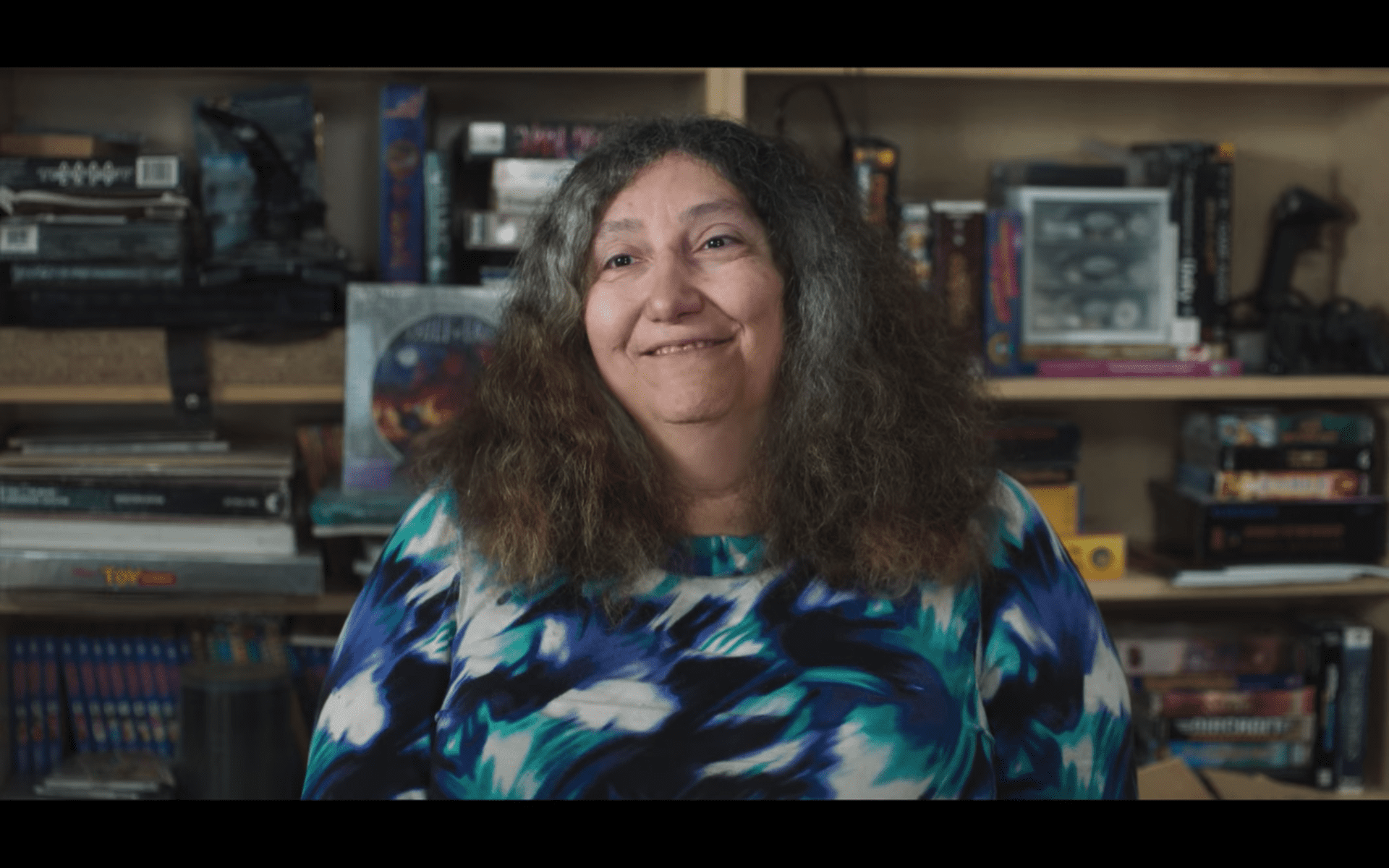Meet Rebecca Heineman, a veteran of the video games industry. Over the past 40 years, she has moved from becoming the world’s first video game champion, playing Space Invaders on Atari, to writing for video game magazines to helping form development companies like Interplay and Contraband Entertainment. She’s also a trans woman, having come out in the industry in the early 2000s—well before trans rights had received more mainstream acknowledgement. She’s also recognizable to viewers of the new six-part Netflix docuseries High Score, which included Heineman’s start in the industry in its dive into the secret trans and queer history of gaming.
Xtra’s Niko Stratis reached Heineman at her home in Texas to talk about winning that Atari tournament, coming out and carving space for trans folks in the gaming industry.
How did you start gaming?
I had a friend who was collecting Atari 2600 [cartridges]. And he had money, so he bought every cartridge that came out. Eventually I was able to save up enough money through my paper route to get a used Atari 2600, and he would let me borrow his cartridges. But I wanted to collect them all. I ended up figuring out how to use an Apple 2 computer to download the games [and] plug a cable into my Atari 2600 to play the cartridges I downloaded. So I would visit him, borrow all the new cartridges he had, take them home and copy them. And that’s how I was able to practise Space Invaders.
You entered the competitive scene in the 1980s. What did that look like at the time?
In that particular time period, Atari had a thing called the Atari Fan Club. I think it was about two or three dollars to join, and in exchange they sent you coupons and newsletters. In the summer of 1980, anybody who signed up to the club got a letter with a flyer in it [inviting them to] compete in the Los Angeles regional Space Invaders tournament.
I went down to Los Angeles to a place called the Topanga Canyon Plaza Mall, and they had all these kiosks set up with the big Ataris. I competed against about 45,000 people—and I had the high score!
And you went on to win the world championship.
But it’s funny: [When I] started playing [Space Invaders], it took maybe five or six hours of playing before I’d mastered the game to the point where [I was] like, “This game is boring!” And that was really all I played.
You came out as a trans woman while you were working in the industry. What was that experience like?
I came out in early 2001, but I’ve been trans since I was 10. And even during that 1980 [tournament], when you were seeing me winning the prize, in my head I was saying, “Boy, I hope they [don’t] find out I’m a girl.”
As the years went by, I worked for many companies headed by people, or at least managers, who were very homophobic and transphobic. I saw other people in the video game industry come out as trans and then their careers were ruined. So it made me keep my mouth shut.
“I saw other people in the video game industry come out as trans and their careers were ruined. It made me keep my mouth shut”
It wasn’t until I joined up with Electronic Arts [EA] in like 2003 [that I felt safer coming out]. They’d just added a new policy about transgender people [at the company]. An unnamed trans person came out sometime around 2001 at EA. They had no policy at that time, so this person worked with HR to craft the policies. After about a year into this person’s transition, they put the policy up to the board and presented it as a modification to HR policy—and it was approved.
When I got hired and I read the employee manual, I cried tears of joy. It was eye-opening to me that this company was going to have my back. And that was what pushed me to finally come out. I was only at EA for about a month before I came out. At that point, I lost some friends, but everyone else was so supportive and [have been] rooting for me for the past 17 years. My only regret is that I wish I came out earlier.
The documentary High Score mentioned that EA was recognized as a leader in terms of LGBTQ2S+ employees. Was EA a much more welcoming space than other parts of the industry that you worked in?
Advertisement
Well, yeah. Having such a policy in 2003 was unheard of. Most companies did not have any kind of transgender policy or insurance. But the fact that I was at a video game company, a major player, and they had this open policy gave me hope that I would be able to stay in the video game industry even after leaving EA—and it turned out to be true.
When you look at the video game industry now, how do you feel about it in terms of space for trans people?
It’s a lot more welcoming. But there’s still work to do. We’ve heard stories from Riot Games [where there are accusations of rampant sexism] and Ubisoft [which has faced numerous sexual harassment allegations]. It takes a while for hardcore misogynists and transphobes to finally age out, because those people will never change. The only way to get rid of these people is to wait until they retire and they’re no longer in the industry, and to make certain that all the new people coming in don’t go to the old ways and bring a new generation of transphobes and misogynists.
“Trans representation in games is getting better, but it still has a long way to go”
Are there advocacy groups for trans folks in the industry?
There’s the International Game Developers Association. They have a branch that is the LGBTQ2S+ group and [they have] a mailing list. They also have meetings during the annual Game Developers Conference (GDC) where they get together and speak. Most of the time, it’s griping about which companies and which individuals are not LGBTQ2S+-friendly and what we can do [about it].
What advice would you have for trans folks looking to get into the industry?
If you’re interested in getting hired at a major company, you can always ask during your interviewers what the HR policy is for LGBTQ2S+ [employees]. Most companies are open about their policies and giving employee handbooks to you even if you aren’t working there. And especially with companies that are headed by young people, most of them don’t give a shit about whether or not you’re trans—they only give a shit whether you can do the job they’re going to pay you to do.
Trans representation in games is getting better, but it still has a long way to go. I think it will only be a matter of time before trans people are represented as equally as they are in the general population.
This interview has been edited and condensed for clarity.


 Why you can trust Xtra
Why you can trust Xtra


